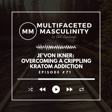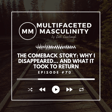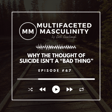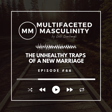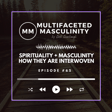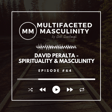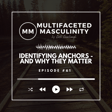
Unpacking Narcissism - The Original Douchebag | #45
True Narcissists are douchebags! Well, they can be. Narcissism in relationships, Narcissism in the Church or other organizational leadership - it seems to be a hot topic lately and many are still trying to understand it. It tends to creep into even the most beautiful of environments and stifle initially benevolent intentions. In today's episode, Josh and Seth unpack Narcissism and its close proximity to our worlds and how it can negatively influence, control, limit and block a healthy reality or paradigm for where we’re at.
In this episode you'll learn:
- Basic characteristics of narcissism and how it develops
- True healthy masculinity vs. toxic narcissistic masculinity
- Narcissistic tendencies vs. being a narcissist
- What Narcissists need to survive
- How to address your Narcissistic tendencies
- The Empowerment Dynamic - Victim vs. Creator
“The church environment, in my opinion, is a breeding ground for narcissism because of the whole service mentality.” - Josh
“Narcissism finds its safety in controlling” - Josh
“You can’t open your heart up and not be empathetic. Plant Medicine allows for you to be empathetic” - Seth
“They could be a complete asshole and you can still love them but that does not mean you’re supposed to stay in that relationship. Love is not always enough.” - Seth
[Looks like Nadya didn’t do quotes yet for this episode, so I didn’t think to listen for quotes, but I kind of remember some things we talked about, so maybe the above will work.]
LinksHost Name: Josh Cearbaugh
https://www.instagram.com/jcearbaugh/
https://facebook.com/joshcearbaugh
https://www.jumpstartyourlife.com
LinksHost Name: Seth Conner
https://www.instagram.com/sethaconner/
https://www.facebook.com/iSethConner/
https://www.linkedin.com/in/sethaconner/
Companies, Products & Places Mentioned
Mushroom Doctor (psilocybin micro-dosing)
www.MushroomDoctor.co/shop
The Power of TED (The Empowerment Dynamic) (https://www.amazon.com/POWER-TED-EMPOWERMENT-DYNAMIC-Anniversary/dp/0996871802)
Default Mode Network (https://psychedelicstoday.com/2020/02/04/psychedelics-and-the-default-mode-network/)
